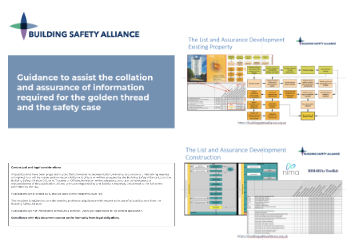Compensation event
The NEC Engineering and Construction Contract 3rd Edition (NEC3) was published in June 2005. It has been adopted as the contract of choice by the government who no longer update the GC Works contracts, and has been endorsed by the ICE whose own suite of contracts will no longer be updated.
Compensation events are referred to in NEC3, and are similar to relevant events and relevant matters referred to in other forms of contract such as JCT contracts.
If events occur during the course of the works that cause the completion of the works to be delayed then these may be compensation events. Compensation events will normally result in additional payment being made to the contractor and may result in adjustment of the completion date or key dates.
The contract limits compensation events to those, and only those, identified in the contract. If an event is not identified in the contract as being a compensation event then no claim should be submitted whether or not there has been a delay. The contract prevents the parties circumventing the contract by making a claim for damages at common law.
Events that normally constitute compensation events are set out in clause 60.1. There is also provision for the parties to add additional compensation events, but great care must be taken here as to how such events are defined.
Very broadly, compensation events tend to be those events that impact on the completion date, but are not the contractor’s fault. This might include events that are caused by the client, or neutral events such as exceptionally adverse weather. However, NEC3 does not treat compensation events as an allocation of blame, but rather an allocation of risk. Any risk that is not specifically identified as being attributed to the client is borne by the contractor.
Specific identified compensation events include:
- Instructions to change the service (unless this results from accepting a defect, or from a change requested by the contractor).
- Failure to provide access.
- Failure of the client to provide equipment, plant or materials.
- An instruction to halt, or delay the works.
- Work done by others.
- Conditions that could not reasonably have been foreseen.
- Exceptionally adverse weather (beyond one in ten year frequency).
- Force majeure (such as an epidemic or an 'act of God').
If an event occurs that the contractor considers to be a compensation event, they must notify the project manager within 8 weeks of becoming aware of the event (unless the project manager should have given notification). This is a condition precedent to making a claim, and compensation events cannot be considered if the 8 week deadline is missed. However the phrase ‘becoming aware of’ leaves some scope for dispute.
The project manager then has one week to agree whether they consider that it is a compensation event. The contractor then has up to three weeks to provide quotation, and the project manager a further two weeks to respond. When agreement has been reached, any changes to the contract are implemented.
The contract also makes provision for early warning procedures. Both parties must give early warning of anything that may delay the works, or increase costs. They should then hold an early warning meeting to discuss how to avoid or mitigate impacts on the project. If the contractor fails to give early warning of a possible delay to the works, or increase in costs, they will only be compensated for effects that would have remained anyway even if they had given early warning.
If the contractor fails to give warning of an event that may give rise to a possible delay to the works, or increase in costs, within 8 weeks of becoming aware of the event, they will not be entitled to a change in price, completion date or key date, unless the project manager should have notified the event to the contractor but did not.
[edit] Related articles on Designing Buildings
- Accepted programme.
- Compensation.
- Compensation events and Brexit.
- Concurrent delay.
- Consideration.
- Construction contract.
- Contractual obligation.
- Defects.
- Delay damages.
- Disallowed cost.
- Disruption claims in construction.
- Early warning notice.
- Excepted risk.
- Extension of time.
- Force majeure.
- Henry Boot Construction Ltd v Alstom Combined Cycles.
- How to prepare a claim for an extension of time.
- Key dates.
- Liquidated damages.
- Loss and expense.
- Neutral event.
- Payment for extra work.
- Penalty.
- Prolongation.
- Project manager.
- Reasonable time.
- Relevant events.
- Term contract.
- Time Risk Allowance TRA.
- Variations.
- What is a default?
- Z clauses.
[edit] External references
- ICI v Merit Merrell Technology.
Featured articles and news
International Electrician Day, 10 June 2025
Celebrating the role of electrical engineers from André-Marie Amperè, today and for the future.
New guide for clients launched at Houses of Parliament
'There has never been a more important time for clients to step up and ...ask the right questions'
The impact of recycled slate tiles
Innovation across the decades.
EPC changes for existing buildings
Changes and their context as the new RdSAP methodology comes into use from 15 June.
Skills England publishes Sector skills needs assessments
Priority areas relating to the built environment highlighted and described in brief.
BSRIA HVAC Market Watch - May 2025 Edition
Heat Pump Market Outlook: Policy, Performance & Refrigerant Trends for 2025–2028.
Committing to EDI in construction with CIOB
Built Environment professional bodies deepen commitment to EDI with two new signatories: CIAT and CICES.
Government Grenfell progress report at a glance
Line by line recomendation overview, with links to more details.
An engaging and lively review of his professional life.
Sustainable heating for listed buildings
A problem that needs to be approached intelligently.
50th Golden anniversary ECA Edmundson apprentice award
Deadline for entries has been extended to Friday 27 June, so don't miss out!
CIAT at the London Festival of Architecture
Designing for Everyone: Breaking Barriers in Inclusive Architecture.
Mixed reactions to apprenticeship and skills reform 2025
A 'welcome shift' for some and a 'backwards step' for others.
Licensing construction in the UK
As the latest report and proposal to licence builders reaches Parliament.
Building Safety Alliance golden thread guidance
Extensive excel checklist of information with guidance document freely accessible.
Fair Payment Code and other payment initiatives
For fair and late payments, need to work together to add value.
Pre-planning delivery programmes and delay penalties
Proposed for housebuilders in government reform: Speeding Up Build Out.
High street health: converting a building for healthcare uses
The benefits of health centres acting as new anchor sites in the high street.
























